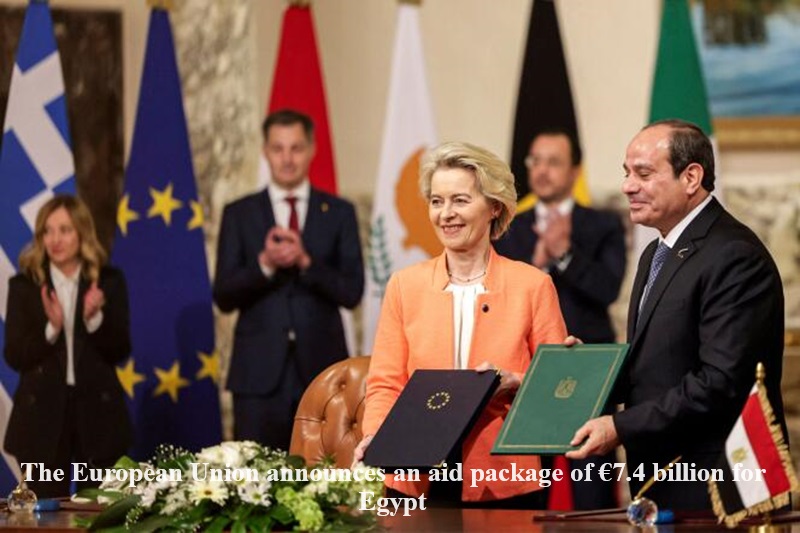
The European Union (EU) has unveiled a financial aid package totaling €7.4 billion ($8.06 billion) for Egypt, with the goal of bolstering the country’s economy and fostering cooperation to address migration-related challenges.
This announcement comes amid growing concerns about migration pressures and is part of a broader strategy to reinforce Egypt’s borders and stabilize the region.
The agreement was inked in Cairo on Sunday afternoon in the presence of Egyptian President Abdel Fattah el-Sissi, President Ursula von der Leyen of the European Commission, and leaders from Belgium, Italy, Austria, Cyprus, and Greece.
Before the signing ceremony, President El-Sissi held separate meetings with von der Leyen and other European leaders.
Despite criticism from rights groups over Egypt’s human rights record, the deal signifies a deepening of ties between the EU and Egypt, elevating their relationship to a strategic partnership.
Breaking down the aid package, it includes grants and loans over the next three years, aimed at providing crucial financial support to Egypt. The package comprises €5 billion ($5.45 billion) in concessional loans, €1.8 billion ($1.96 billion) in investments, and an additional €600 million ($654 million) in grants, with a portion specifically earmarked for managing migration issues.
The EU’s mission in Cairo highlighted the upgraded cooperation between the EU and Egypt to a “strategic and comprehensive partnership,” facilitating expanded collaboration across various economic and non-economic sectors.
The Joint Declaration, a part of the agreement, outlines shared objectives such as promoting democracy, fundamental freedoms, human rights, and gender equality. Both parties commit to intensifying efforts to tackle challenges related to migration and terrorism.
A significant aspect of the aid package involves supporting Egypt in enhancing its border security, particularly with Libya, a crucial transit point for migrants fleeing poverty and conflict. With concerns rising over potential migration pressures from conflicts in neighboring countries, the EU’s assistance aims to strengthen Egypt’s capacity to manage migration flows effectively.
However, the deal has faced criticism from international rights groups over Egypt’s human rights record. Organizations like Amnesty International have called on European leaders to ensure that Egyptian authorities adhere to clear benchmarks for human rights. Restrictions on media and freedom of expression, as well as a crackdown on civil society within Egypt, have raised concerns.
While the EU emphasizes its commitment to promoting democracy and freedoms, the agreement’s focus on migration controls has drawn scrutiny for potentially overlooking human rights abuses.

Post Your Comments